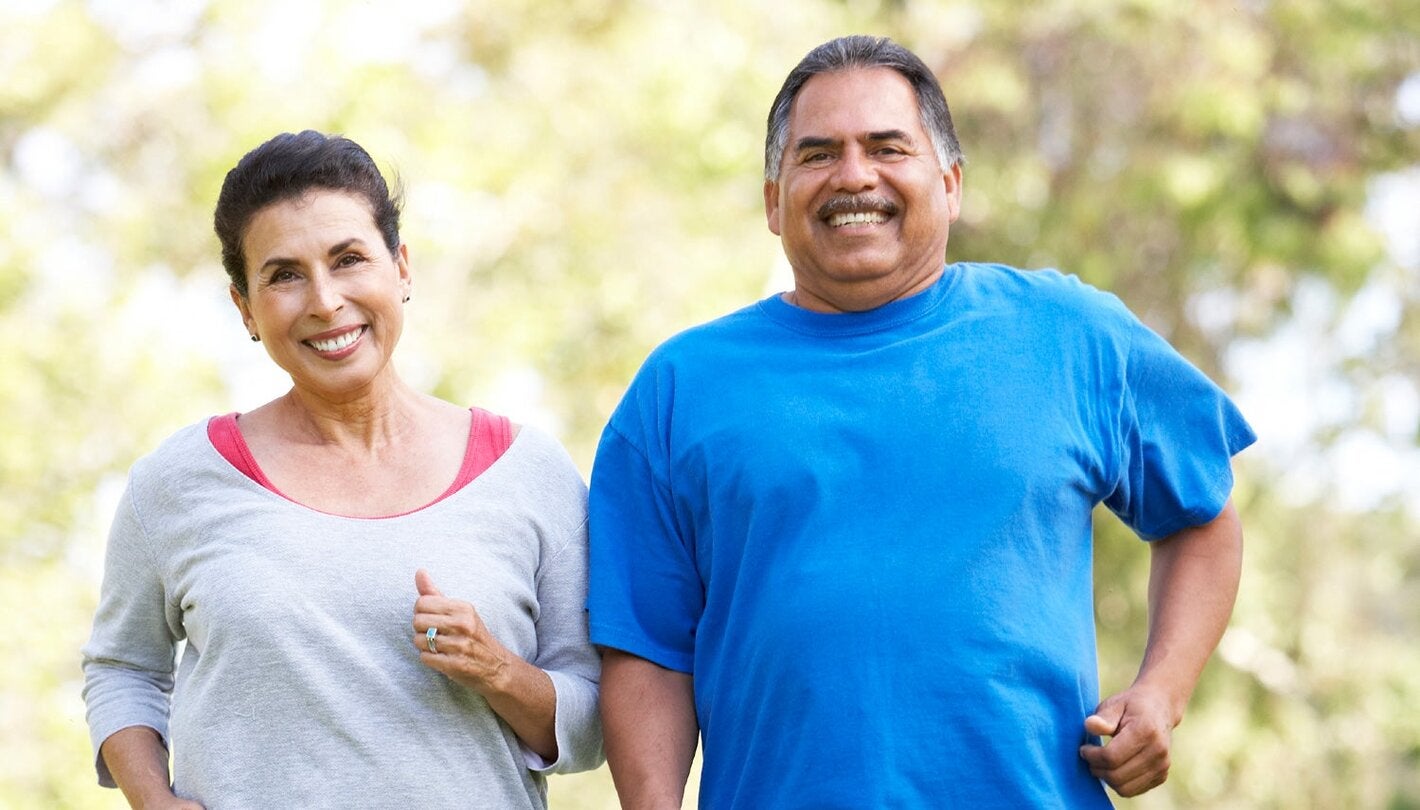Action area I:
Change how we think, feel and act towards age and aging
Despite all the contributions and actions older adults have made to their communities and family members, there is still a lot of stereotyping (how we think), prejudice (how we feel) and discrimination (how we act) toward people based on their age. Ageism affects people of all ages, but has particularly deleterious effects on the health and well-being of older people.
With the support of the PAHO/WHO, the Inter-American Convention on Protecting the Human Rights of Older Persons was adopted at the General Assembly of the Organization of the American States (OAS) in June 2015. The Convention specifically advocates for the importance in ensuring that older adults receive:
- independence and autonomy
- informed consent on health matters
- equal recognition before the law
- social security, accessibility and personal mobility
- and many other fundamental human rights
The value in these liberties were decided by experts from multiple regions and several countries have ratified this Convention including Argentina, Bolivia, Chile, Colombia, Costa Rica, Ecuador, El Salvador, Mexico, Peru, Suriname and Uruguay.
Adopting this Convention promotes the economic, social, political, educational, and cultural engagement of older persons. For example, Costa Rica has successfully implemented multiple laws to further enforce these ideals. The “Integral Law for older adults in Costa Rica” guarantees that older people have “equality of opportunities and a dignified life.” The “San Jose Charter on the Rights of Older Adults in Latin America and the Caribbean” asserts the improvement and development of the social protection systems to meet the needs of older adults, and the “Law on Penalization of Abandonment of Older Adults” ensures that persons who abandon and neglect older adults will receive felony charges. It is important for legal frameworks around the world to further advocate and protect this vulnerable and rapidly expanding older adult population in their respective countries.
Resources related to the area
SDGs and Aging
![]()
Inter-American Convention on Protecting the Human Rights of Older Persons
Action area II:
Ensure that communities foster the abilities of older people
Physical, social and economic environments, both rural and urban, are important determinants of healthy aging and powerful influences on the experience of aging and the opportunities that aging offers. Age-friendly environments are better places in which to grow, live, work, play and age, which means an age-friendly community is a better place for all age groups.
The WHO Global Network for Age-friendly Cities and Communities
In turn, the WHO Secretariat and other UN agencies were called to extend the WHO Global Network for Age-Friendly Cities and Communities and other work to foster healthy aging to ensure providing:
- evidence and technical assistance to countries for building age-friendly environments and ensuring that the most vulnerable are being served;
- opportunities to connect cities and communities, exchange information and experiences and facilitate learning by leaders in countries, cities and communities on what works to foster healthy aging in different contexts;
- tools and support to countries, cities and communities to monitor and evaluate progress in creating age-friendly environments; and
- identifying priorities and opportunities for collaborative action and exchange among networks and constituencies.
The WHO Global Network for Age-friendly Cities and Communities currently includes 1,500 cities and communities in 51 countries, covering over 300 million people worldwide.
Just in 2019, 186 communities from the Americas were added to the WHO Global Network of Age Friendly Cities and Communities. The Americas now has the most approved communities of any region and represents more than half of all member communities worldwide, with over 800 certified cities. At the moment, the approved countries include Argentina, Bolivia, Brazil, Canada, Chile, Colombia, Costa Rica, Cuba, Mexico, Paraguay, Peru, Puerto Rico, U.S.A., and Uruguay.
Membership to the Network is not an accreditation for age-friendliness. Rather, it reflects cities’ commitment to listen to the needs of their aging population, assess and monitor their age-friendliness and work collaboratively with older people and across sectors to create age-friendly physical and social environments. Membership is also a commitment to share experience, achievements and lessons learnt with other cities and communities.
Visit the PAHO’s web page of the Network to learn more about this initiative in the region.
Resources related to the area
![]()
To join the Network and find out more about what actions communities are taking, refer to the following links:
- Apply for Membership
- Browse the Network
- Consult the Age-Friendly Practices Database
- Age-friendly cities and communities in the Americas
For further guidance on the step-by-step Membership process, guides and methodology, please refer below to the list of resources and guiding tools.
Resources and Guiding Tools
- Main Home “Welcome to Age-Friendly World”
- About WHO Global Network of Age-Friendly Cities and Communities (GNAFCC)
- Online Application form for the WHO Global Network for Age-friendly Cities and Communities
- A WHO Age-Friendly Cities Framework that offers the development set of age-friendly city checklist
- Guide for Membership
- WHO Age-Friendly Cities Project Methodology: The Vancouver Protocol led to the creation of the WHO Global Age-Friendly Cities Guide publication in 2007. Its purpose is to guide the assessment of community’s age-friendliness as a basis to identify areas for action and to be used as a checklist of age-friendly city features.
- The Global Network for Age-friendly Cities and Communities: Looking back over the last decade, looking forward to the next (WHO; 2018)
Action area III:
Deliver person-centered integrated care and primary health services responsive to older people
Health systems need to be prepared to deliver high quality health care for older people that is integrated among providers and settings and one that is linked to the sustainable provision of long-term care. Integrating health and social sectors in a person-centered approach is key to achieve better care for older adults. In addition, the vision of implementing services driven by maintaining and improving the functional ability of older individuals is essential to achieve healthy aging.
Functional ability is defined as the “health-related attributes that enable people to be and to do what they have reason to value,” and consists of the intrinsic capacity of the individual, - the “composite of all the physical and mental capacities that an individual can draw on” - the environment of the individual, and the interactions between them. These definitions are important to point out the relationship between the components of the Decade of Healthy Aging and the relevance of developing intersectoral activities, built upon a life course approach.
In particular, PAHO has developed a virtual course, titled the “International Accreditation of Competencies in Health Care for Older Persons (ACAPEM),” specifically for primary care health professionals. It consists of three progressive levels. The ACAPEM-Basic course is currently available in English and Spanish and has more than 20,000 enrolled participants. It will soon be available in Portuguese.
Specifically, the ACAPEM-Basic course covers the following:
- Changes in the care of older people;
- Comprehensive health care assessment of older people;
- Criteria for health care interventions in older people; and lastly,
- Optimization of care for older patients.
The ACAPEM-Intermediate course is under development and will be launched in 2021.
Resources related to the area
ACAPEM-B and COVID-19 webinar series:
• ACAPEM Course: COVID-19 and the comprehensive care of older people
• ACAPEM Course : COVID-19 and optimization of care for older people
• ACAPEM Course: COVID19 and care focused on older people
• ACAPEM course: COVID19 and comprehensive assessment for older people
Sign up for the ACAPEM-B course
Other resources related to person-centered integrated care:
- WHO Guidelines on Integrated Care for Older People (ICOPE)
- ICOPE handbook (app for implementation)
- ICOPE framework
- ICOPE brochure
- Integrated care for older people (ICOPE) implementation pilot programme: Findings from the 'ready' phase (WHO)
- Building Health Throughout the Life Course. Concepts, Implications, and Application in Public Health (PAHO)
- Other programs:
- Chronic Disease Self-Management Small group - SMRC - Self-Management Resource Center (selfmanagementresource.com)
- Vivifrail: Program on physical exercise for the prevention of frailty and falls in the elderly
- Diabfrail LatAm: Program on exercise and education in the functional capacity of older persons with diabetes
Action area IV:
Provide access to long-term care for older people who need it
Declines in physical and mental capacities can limit older people’s ability to care for themselves and to participate in society.
The majority of people in need of such care is older adults, most of who live in the community and receive care from informal caregivers like family members and friends. Access to good-quality long-term care is essential to maintain functional ability, enjoy basic human rights and live with dignity. In addition, it is essential to support caregivers, so they can deliver proper care and also take care of their own health.
Resources related to the area
Resources and Guiding Tools
- Implementing long-term care systems in the Americas: a regional strategy | Pan American Journal of Public Health
- Framework for countries to achieve an integrated continuum of long-term care
- The Challenges and Opportunities in Fostering a Long-Term Care System in the Americas
- Webinar: Meeting the challenge of long-term care: What we need? Where to find it? Can we afford it?
Other resources related to the Decade
- WHO Decade of Healthy Ageing (2021-2030)
- Decade of Healthy Ageing 2020–2030 (Final Proposal)
- Madrid International Plan Action on Ageing 2002
- 2030 Agenda for Sustainable Development
- World report on ageing and health (2015)
- La Estrategia Global y el Plan de Acción sobre el Envejecimiento y la Salud
- Decade of Healthy Ageing 2020–2030 (EB1 146/23, 11 dic 2019)






